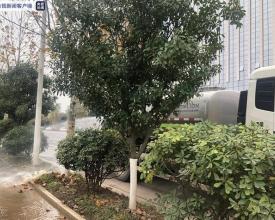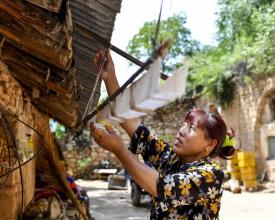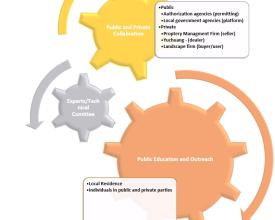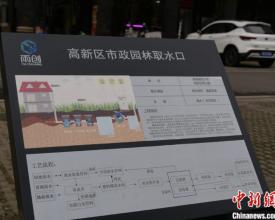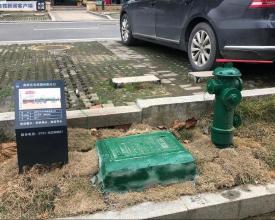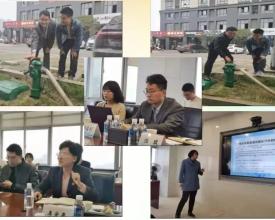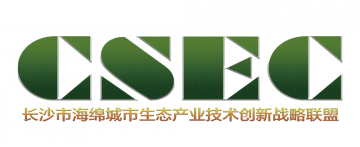
Collecte des eaux pluviales et commerce dans une ville éponge
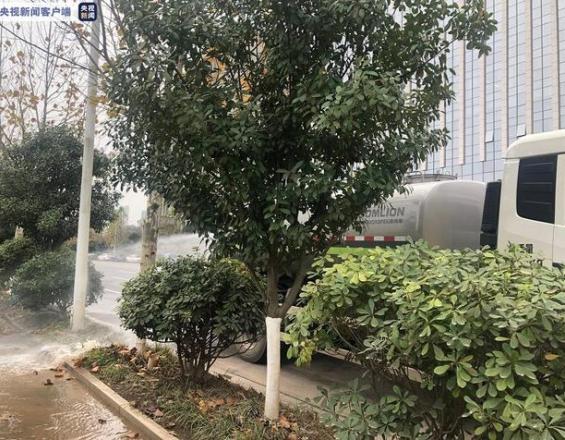
Dans la ville de Changsha, dans la province du Hunan, le premier accord commercial sur les eaux pluviales de Chine a été lancé et mis en œuvre avec succès grâce au soutien et à la collaboration entre les agences gouvernementales et plusieurs parties privées.
Le 24 septembre 2020, Changsha High-tech Zone Municipal Garden Sanitation Co. Ltd. et Hunan Yuchuang Environmental Protection Engineering Co. Ltd. (Yuchuang) ont signé un accord stratégique pour acheter et vendre les ressources en eaux pluviales récoltées dans certaines communautés de la Cité de l'éponge, créant ainsi un nouveau modèle d'utilisation des eaux pluviales et soutenant la durabilité de la mise en œuvre de la Cité de l'éponge.
Les eaux pluviales récoltées dans certaines installations de la Cité de l'éponge peuvent être vendues à un prix inférieur de 20 % à celui de l'eau du robinet, ce qui incite à la collecte et à la réutilisation des eaux pluviales. Les eaux pluviales sont ensuite utilisées pour l'irrigation des espaces verts, l'aménagement des paysages, le contrôle de la poussière, etc.
Contexte
Défis à relever
Le flux de financement à long terme de la Cité de l'Éponge est très important. Étant donné que la plupart des secteurs privés ne souhaitent pas investir dans les projets de la Cité de l'Éponge et que les redevances sur les eaux pluviales sont loin d'être appliquées dans la plupart des villes chinoises, d'autres sources de financement pour la mise en œuvre de la Cité de l'Éponge sont nécessaires pour soutenir la construction et le fonctionnement et l'entretien.
Le système actuel d'échange des eaux pluviales est encore à l'état de projet pilote. L'un des principaux problèmes est que les droits relatifs à l'eau et aux eaux pluviales ne sont pas encore clairement définis en Chine. Ainsi, le système d'échange, dans sa forme actuelle, est encore davantage imposé par le gouvernement que guidé par le marché, ce qui doit être amélioré dans un avenir proche.
Emplacement
Traiter
Résumé du processus
Des experts en commerce de l'eau, en gestion des ressources en eau et en gestion des eaux pluviales ont été invités et ont fait partie d'un comité technique chargé de former les représentants de toutes les parties et d'organiser des événements éducatifs pour les résidents. Nous avons appris que la communication au cours de la sensibilisation et de la collaboration est importante pour rassembler des personnes ayant des antécédents différents afin de parvenir à un accord gagnant-gagnant.
Blocs de construction
Éducation et sensibilisation du public en matière d'eaux pluviales
Au début de la planification de la plateforme commerciale, des actions d'éducation et de sensibilisation du public ont été menées afin de promouvoir le concept de ville éponge et d'introduire le commerce.
De nombreux habitants des communautés locales sont venus visiter et apprendre, ce qui a stimulé l'intérêt des habitants pour l'utilisation des ressources en eau de pluie.
Facteurs favorables
Des séminaires et des réunions publiques ont également été organisés à proximité du site pour répondre aux besoins des différentes parties, des résidents locaux aux professionnels. Le système communautaire de collecte des eaux de pluie est doté de panneaux, d'affiches et de posters destinés à l'éducation environnementale des résidents locaux et des étudiants.
Leçon apprise
Il faut du temps pour que les habitants apprennent de nouvelles choses. La ville éponge est un nouveau concept en Chine, tout comme le commerce des eaux pluviales. L'éducation et la sensibilisation du public doivent être planifiées avant la conception et la construction des installations, afin que les habitants puissent être informés dès le début de la conception, de la construction et de l'exploitation.
Il est également important de disposer de matériel éducatif à proximité de certains sites de démonstration pour présenter la ville éponge et la collecte des eaux de pluie, etc.
Dans certaines communautés de Changsha, cet effort a été mis en œuvre dès le début de l'initiative Sponge City, ce qui a permis au commerce des eaux pluviales de progresser en douceur.
Les habitants de la communauté locale qui ont participé à la transaction ont exprimé leur soutien à la collecte, à la réutilisation et à l'échange des eaux de pluie.
Collaboration multipartite public-privé
Les autorités locales et quelques parties privées sont impliquées dans le commerce. La collaboration est très appréciée et est la clé du succès du commerce des eaux pluviales.
Facteurs favorables
Les parties publiques et privées ont la volonté de collaborer à un objectif commun, qui est de mieux utiliser les eaux pluviales en tant que ressource, d'économiser l'eau du robinet et de réduire les coûts tels que ceux de l'irrigation des espaces verts.
Des conférences, des séminaires et des réunions ont été organisés pour permettre l'apprentissage et les discussions sur la création d'une plateforme d'échange d'eaux pluviales.
Leçon apprise
Comme il s'agit d'une nouveauté en Chine, les experts du comité technique ont présenté des expériences internationales et des études de cas qui ont aidé les parties à comprendre les objectifs communs et à parvenir à des accords de manière équilibrée.
Impacts
L'objectif de Sponge City, exigé par le gouvernement chinois, est de gérer et de retenir environ 70 % des eaux de ruissellement sur 80 % des terrains urbains d'ici à 2030. Il s'agit là d'une bonne occasion de réutiliser les eaux de ruissellement et de vendre les ressources en eau excessives à d'autres parties.
Depuis 2014, les eaux pluviales récoltées à Yuchuang peuvent atteindre 1 à 2 millions de mètres cubes par an, et leur valeur peut aller jusqu'à 1,5 million de yuans (0,21 million de dollars américains), ce qui ne représente en fait qu'une très petite partie des ressources totales en eaux pluviales de la ville de Changsha.
C'est la première fois en Chine que l'eau de pluie peut être échangée sur une bourse d'État, ce qui constitue un petit pas vers la réaffectation des ressources en eau pour résoudre la crise de l'eau.
Bénéficiaires
1) Propriétaire :
Gain de 0,7 yuan (0,11 USD) par mètre cube d'eau de pluie ;
2) Yuchuang :
Vente après une bonne majoration à 3,85 yuans (0,60 USD),
3) Landscaping Company :
Le prix est encore 20 pour cent moins cher que le prix de l'eau du robinet, ce qui représente une bonne économie.

